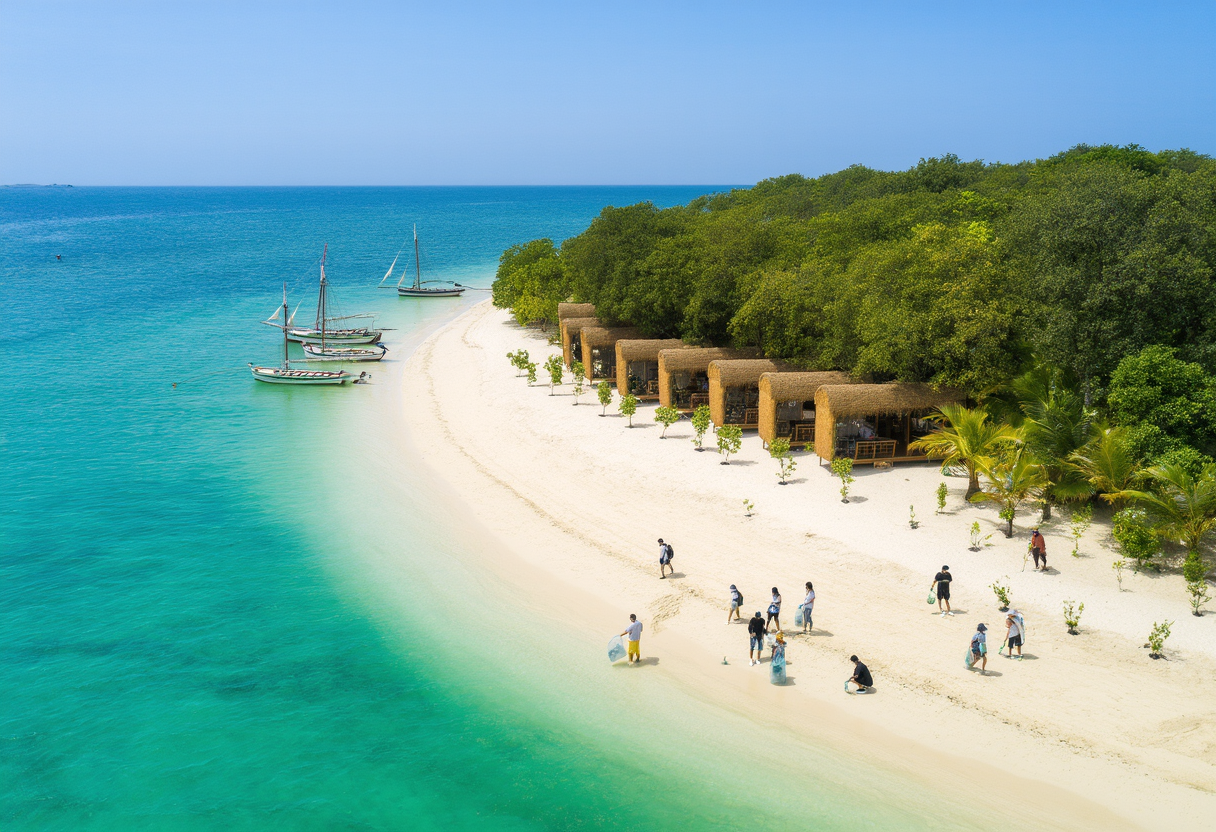Island Tourism: The Rise of Sustainable Travel
Island tourism is experiencing a significant shift towards sustainability. With rising environmental consciousness, travelers are increasingly seeking eco-friendly options. These sustainable practices not only protect the breathtaking island ecosystems but also enrich the travel experience. From eco-lodges to sustainable dining, each choice helps preserve these paradisiacal locales for future generations. This article explores how island tourism adapts to meet changing demands while emphasizing the importance of maintaining ecological balance.
The Shift Towards Sustainable Island Tourism
In recent years, the concept of island tourism has evolved significantly, placing sustainability at the forefront. Travelers today are not just looking for beautiful beaches, but also seeking experiences that respect and preserve the environment. The rise in eco-tourism reflects a broader societal trend where individuals prioritize ethical travel choices. As more tourists cherish personalized and environmentally friendly experiences, the industry must adapt. This proves that while island tourism thrives on natural beauty, it also requires a commitment to sustainability. Moreover, the local communities benefit greatly when their ecosystems are preserved, promoting a cycle of positive impact.
Impact on Local Economies
Island tourism can boost local economies dramatically; however, its benefits can deteriorate if not managed correctly. Eco-focused travelers tend to spend more on sustainable practices, benefiting local businesses that prioritize green solutions. This shift means that island tourism not only safeguards the environment but also enhances the economic condition of local populations. Traditional practices can coexist harmoniously with modern tourism strategies, fostering a mutual relationship between visitors and natives. Implementing responsible tourism initiatives will also attract visitors who are willing to pay a premium for authentic experiences rooted in local culture. Effectively managed island tourism can serve as a model for similar regions globally.
Exploring Cultural Authenticity in Island Tourism
Cultural authenticity is a vital aspect of island tourism that often gets overshadowed by the focus on natural beauty. Tourists are increasingly interested in learning about local customs, traditions, and crafts. By engaging with local communities, travelers gain a deeper insight into the cultural significance of their destinations. This type of interaction fosters sustainable island tourism by encouraging visitors to support local artisans and cultural initiatives. Preservation of cultural heritage, alongside environmental sustainability, ensures that future generations can enjoy these rich experiences. Thus, island tourism becomes more than just a vacation; it transforms into an educational journey.
Technological Innovations Shaping Island Tourism
The integration of technology plays a critical role in the evolution of island tourism. Innovations like virtual reality can provide previews about island experiences while promoting responsible tourism practices. Additionally, platforms connecting travelers with eco-friendly lodgings and local guides can revolutionize the way island tourism operates. By utilizing apps and social media effectively, operators can share stories that highlight sustainable practices. Moreover, technology can assist in conserving wildlife and protecting natural resources, which are paramount to island tourism. Therefore, embracing technology is essential for sustaining these precious destinations.
The Role of Government Policies in Promoting Island Tourism
Government policies are crucial in fostering sustainable island tourism. By creating regulations that support environmental protection, authorities ensure that tourism benefits local communities without depleting precious resources. Incentives for sustainable practices, such as grants for eco-lodges or conservation funding, can significantly impact island tourism's future. Governments should actively involve local populations in decision-making processes, creating a participatory roadmap for tourism development. This collaborative approach results in creating policies that reflect the needs of both locals and tourists, promoting a balanced relationship.
Future Outlook for Island Tourism
The future of island tourism appears bright yet challenged due to ongoing environmental concerns. As awareness of climate change increases, travelers will likely seek out destinations that prioritize sustainability. The concept of “regenerative tourism” is gaining traction, which goes beyond mere sustainability to enhance the environment. By investing in conservation efforts and fostering community well-being, the industry can create a more resilient model of island tourism. Thus, stakeholders must collaborate closely to embrace this ethos, ensuring that these beautiful islands will be enjoyed by countless generations to come.
